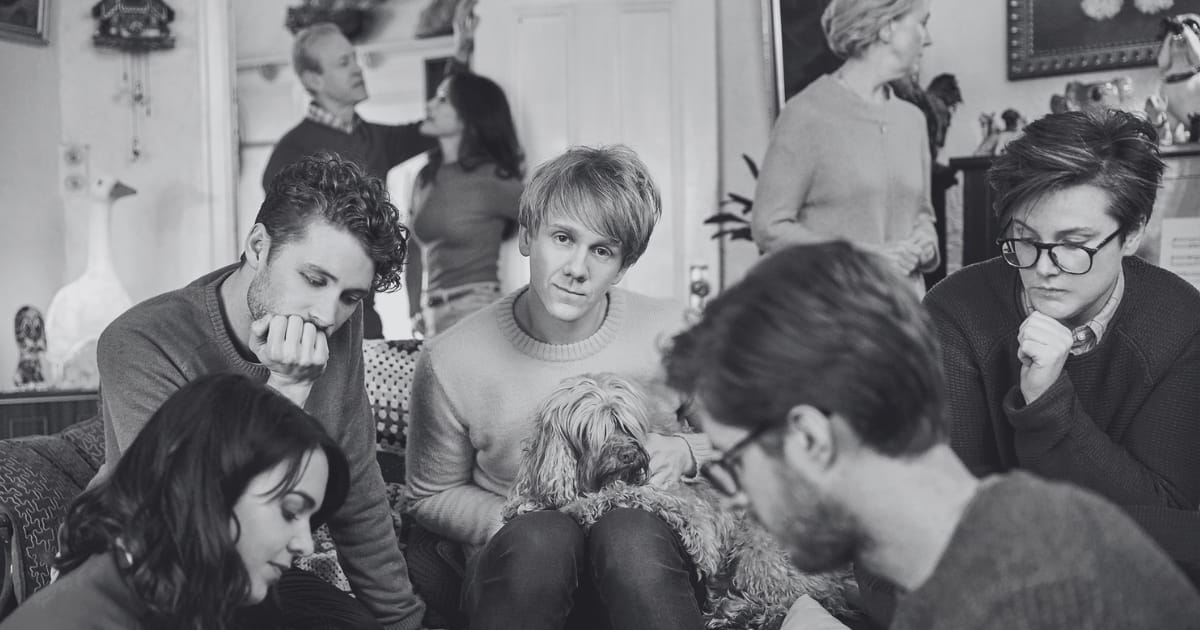There’s a scene in Please Like Me that broke me in the most unexpected way. Josh sits across from his mum in a psych ward. She’s just attempted suicide. He made spaghetti bolognese. It’s quiet. Stilted. Kind of funny. Kind of not.
“Why do you always bring spaghetti?” she asks.
“Because I’m good at it,” Josh replies, deadpan.
That’s the emotional blueprint of the show right there: devastating honesty layered with absurdity. A comedy about queer identity, mental illness, friendship, and family that never once reaches for easy answers, but always reaches for something real.
Created by and starring Josh Thomas, Please Like Me ran from 2013–2016 and quietly redefined what queer storytelling could look like on Australian TV. No glitter. Okay, a little glitter. No soundtracks of triumph. No coming out party set to Robyn. Just a 20-something Australian guy navigating his sexuality, his mum’s depression, casual hookups and existential dread. There was also a pet guinea pig named Ginger.
The show opens with Josh’s girlfriend breaking up with him and telling him he’s gay. He shrugs and kind of accepts it.
“I don’t think I’m gay. I just think I like him.”
Where Please Like Me really hits different is in its treatment of mental health. It doesn’t dramatise it. It doesn’t turn it into a teaching moment. It just sits in it. Josh’s mum, played brilliantly by Debra Lawrance, isn’t a “tragic figure.” She’s funny. And deeply unwell. And human. She says awful things and then apologises. She tries to parent and fails. She wants to be better but doesn’t know how. It’s not a PSA. It’s what it’s like to love someone who is mentally ill, and to be one of those people, too.
“You’re allowed to be sad, but you’re not allowed to be mean.”
Josh doesn’t have a big “coming out” arc. He has awkward dates, unsatisfying sex, sweet moments, and the occasional emotional implosion. There’s Arnold, a sweet, anxious boyfriend. There’s Geoffrey, who sings “We Are Never Getting Back Together” into Josh’s face. There’s a lot of figuring it out.
What makes Please Like Me special is that Josh’s queerness isn’t treated as something to be solved. It’s just there. It’s woven into his relationship with his dad, with his best friend Tom, with the world.
“Do you ever think we’re all just inherently unlovable?” Josh asks, lying in bed.
“No,” Arnold replies.
“Okay, but like… are you sure?”
Despite the trauma and the tears, this is also one of the funniest shows ever made. It’s awkward. Dry. So very Australian it hurts. And Josh is not a likeable character. And that’s the point. He’s kind of annoying. Kind of selfish. Kind of lost. Kind of… us.
In a sea of queer shows that are either tragedy porn or triumph arcs, Please Like Me is something else: emotionally messy, deeply mundane, and beautifully sad.
It gave us queer identity without sensationalism, mental illness without melodrama, family dysfunction without cruelty and pasta. So much pasta. It told us it’s okay to laugh when things are awful. To make spaghetti when you can’t fix anything. To exist in the mess, because sometimes that’s all we can do.

